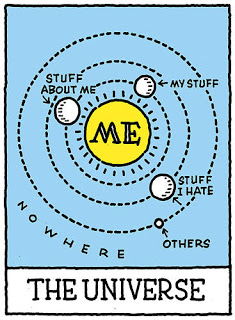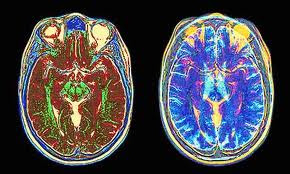The Ultimate Guide to Online Marketing: Strategies, Tools, and Tips for Success
By targeting relevant keywords and creating high-quality content, 전자담배액상, you can improve your website’s visibility and attract organic traffic.
psychopathicwritings

By targeting relevant keywords and creating high-quality content, 전자담배액상, you can improve your website’s visibility and attract organic traffic.

Safeguarding Your Digital World In today’s interconnected digital landscape, the importance of cyber security cannot be overstated. As technology advances, so do the methods employed by malicious actors seeking to exploit vulnerabilities for personal gain. It is crucial for individuals, businesses, and organizations to implement robust cyber security measures to protect sensitive data, preserve privacy,…

We all have experienced the feeling when we hear certain songs that evoke powerful emotions within us – whether it’s joy, sadness, anger or nostalgia. 강남가라오케, These emotional responses are not just random reactions; they are rooted in the way our brains process musical stimuli.

He will never think of anybody else but you if he says that you are special. 강남어게인

Professional development: Stay up-to-date with the latest techniques and advancements in massage therapy by participating in continuing education opportunities and attending conferences and workshops. It is important to note that practicing massage therapy without proper education and 부천 마사지 certification is illegal in many jurisdictions.

Most men have some misconceptions when it comes to what women want in bed. They believe that women want a one-night stand and a one-night wonder. They also believe that women only want to please their men and not enjoy lovemaking all the time. But the truth is that most women want both. The question…
Read More “What Women Want in Bed? Ways to Always Give Your Woman Multiple Mind-Blowing Orgasms” »

To give your woman powerful orgasms, you have to understand that orgasm is based on couples engaging in sexual act. Therefore, to ensure that a woman can achieve orgasm, you should compel your partner to talk about her sexual wants and needs. If a woman feels that there’s some social pressure to talk about sex,…
Read More “Female Orgasm – Tips to Give Your Woman Earth-Shaking Orgasms” »

The game of baccarat is very popular in the gaming industry. The sensation of the game is not confined among the gaming elite. It is one of the most popular games in the casino, scholarship, and even in the industry itself. It is a game that dates back to the 15th century involving two or…

They are sadly mistaken because it is much more complicated than that. The secrete is just good marketing practices that have proven to work over the years with hard word work and dedication and of course a good program to join. 정보이용료현금화

Female dryness during sex is a very common problem that should be addressed in order to enjoy a healthy sexual life. A woman’s sexual cycle is very important and when it is affected, she will feel lack of desire in sex. Female dryness during sex is failure of the female to achieve orgasm and the…

The possibility of forgiveness is a hard concept for the human soul to grasp. It demands that we let people go. The very fact that we struggle so much with each other, fighting it out in courts, getting intelligence Infinitum, shows that we have not cut the cord between us. We refer to each other…

Are you a good lover? The biggest question men tend to ask themselves after spending time with a woman is, “if I’m good in bed, will she tell nobody but me?” Yes, you have my sympathy on that one. Ladies, I’ve got some easy ways to please you, and if you’re lucky, I can show…

In simple terms if the sentiment shifts in the direction that the fundamentals are saying and the markets are moving with that sentiment there is a high probability that the trend will continue. 해외선물
If you’ve tried everything possible to get traffic to your website, but you can’t seem to get more traffic than you already have, it’s time to take a look at what you’re doing. 문자 사이트 What you need to do is look at what’s working for your competitors, and try to determine what you can do to get your website to rank better than theirs.

Coming from your research study on separation details, featuring what takes place after that, you might possess some concept. 인천이혼변호사 Traits can easily be various in your specific condition.

They additionally open up numerous brand-new doors to a rise of brand new mobile phone requests as well as companies. 소액결제 현금화

the Forex Market If you have been learning about forex trading and how to make money as a forex trader, you will have probably heard about the three assumptions most forex traders make about the forex market. The three assumptions are about how the market works, about movements in the market and about predicting market…

Some dishes phone for striped one-half or even fourth mangos. Striping is certainly not very easy, as the skin layer catches to the fruit product as well as does not happen off. Observe this pointer when you desire to help make a soup utilizing sell. Make sure to help make a huge volume of supply,…
Read More “Preparing food Has Certainly Never Been This Easy Before!” »
Beating the sports betting number is the most challenging job that most bettors intended to discover. They believe that defeating the number can enhance their win percentage, giving them far better chances of winning. Well, defeating the sporting activities wagering number can be challenging specifically if you have no understanding of the game, the gamers,…

Why Am I So Thirsty? Common Causes Why am I so thirsty? It’s a very common reason for people to visit their doctor. There are many reasons for this, and it can turn out to be something really simple, like just not drinking enough, through to more serious medical conditions. But constantly feeling like you…

Today’s share swap has figuratively relocated back outdoors– as relationships and also shares are traded regularly over huge systems all over the world pcs. This brand-new planet of on-web equity investing has ushered in a brand-new section in the assets substitution– one of modification as well as a brand-new degree of ease as well as…

Chances are that you most likely recognize a bargain regarding them because you selected them over comparable firms for your desktop or laptop, or both. This makes them a good possibility for you to start purchasing the stock exchange. 주식 디비
Are you curious about acquiring a recreational vehicle on your own or in your household? If you are, you will certainly locate that you have a variety of decisions to make. One of the many decisions that you will certainly need to make involves choosing whether you would love to get a brand-new mobile home…
Read More “Motor Homes: Should You Acquire New or Utilized” »

Spotify Application– What far better means to capitalize on the ergonomically optimized new ear cases than with the have-to-have Spotify application? 넷플릭스 비밀번호
A balanced-out home loan essentially makes use of the passion from your interest-bearing account versus the rate of interest charged on your mortgage. Usually, your mortgage lender will certainly link your home loan as well as savings account right into a solitary account, with the very same financial institution. Monthly, the amount you owe on…
The Fun Sport of Windsurfing Windsurfing is a relaxing and also lovely sport that lets you appreciate the organic charm of mother nature. If you live in a community that is on the sea or possesses a pond, you may go windsurfing practically any kind of time the state of mind happens to you. If…

Laser device hair extraction, as successful as it is actually, sets you back numerous many thousands of bucks. In some scenarios, hairs will re-grow as well as are going to need to have extra interest.
브라질리언 왁싱 후기

Recruiting IT Candidates Recruiting IT Candidates The process of recruiting IT candidates can be pretty complex, even with the use of online job boards and a plethora of recruiter tools. While a recruiter’s job is to find the best candidate possible, the use of an appropriate tool can make the process easier. This wider net…

Kettle Corn Popcorn Machines For the Home Popcorn Machines : For years I watched my parents make popcorn on the stove in the kitchen. I learned a lot from my mother and grandmother but the popcorn still tasted as good as when I first heard about it. Since I first started cooking popcorn I have…

Prime Characteristics of The Psychopath Test the psychopath test – Everyone has a different image of Psychopaths. Many of us consider that Psychopaths are violent killers, and all of them are villains. But the reality is not similar to it. Psychopaths have different traits in the behaviours that make them do something unusual. It takes…

Psychotherapy Definition: Everything You Need To Know Psychotherapy is one of the general terms that have a broad spectrum. Psychotherapies help to treat psychological disorders, especially mental stress and anxiety. Many of us have mental stress, and we are under psychotherapy treatments. You may not clearly understand psychotherapy as every society has different impressions. Therefore…

Most Realistic Psychopaths In Movies Psychopaths In Movies – Psychopaths are present among us, and their presence in movies is also a reality. We know that movies don’t have real stories, but they have a picture of our society. However, many films feature realistic Psychopaths to bring suspense and curiosity to levels. A psychopath is…

Adjustment Disorders DSM 5 What is Adjustment Disorders in DSM 5? The identification of important life stresses, as well as your symptoms and how they affect your capacity to function, are used to make a diagnosis of adjustment disorders. Your doctor will ask a number of questions regarding your medical, mental health, and social background….

Panic Disorder DSM 5 According to the Diagnostic and Statistical Manual of Mental Disorders, fifth edition (DSM-5), panic disorder is a form of anxiety disorder characterized by acute, repeated, and sudden panic episodes that occur at random times. Fear and anxiety are common responses to stressful circumstances and events, and they may be completely acceptable….

Anorexia Nervosa DSM 5 In the DSM-5, anorexia nervosa is a diagnostic that is given to people who grow obsessed with maintaining low body weight. Anorexia nervosa is a significant psychiatric condition that is defined by aberrant attitudes toward food that impact the patient’s behaviour and eating patterns, typically with negative physical, psychological, and social…

SCHIZOTYPAL PERSONALITY DISORDER Schizotypal Personality Disorder is classified as a personality disorder. It is the most closely connected to the schizophrenia spectrum of the three disorders that comprise this group. In part, it is because of this small distinction that many scholars have decided to remove it from the category of personality disorders and instead…

Eating Disorders Treatments How are eating disorders treated? Eating disorders are medical conditions that are treated with medication. They often coexist with other ailments, such as depression, drug misuse, or anxiety disorders, amongst other states. When treating eating disorders, both psychological and pharmacological interventions are beneficial. The sooner an eating problem is identified and…

Psychiatric Disorders Symptoms Psychiatric Disorders Symptoms : Mental health is a broad term that refers to a person’s emotional and psychological well-being. It includes the ability to experience emotions and relate to others and a sense of self-worth. Psychiatric disorders are mental health problems that lead to significant distress or disability in social, occupational, or…

What is a psychopath IQ test and why is it important? Psychopath IQ test : Psychopaths are people that lack empathy, which are also dishonest and very manipulative. But what many of us don’t know is that studies have shown that based on the latest psychopath IQ test models, these persons don’t really have a…

Is there a psychopath gene or not? Defining what leads a person to becoming a psychopath can be extremely challenging. However, research shows that psychopathy can be a result from environmental and genetic factors. It can be very difficult to point out if there’s a psychopath gene or not, but what we do know is…

Which are some of the most famous psychopaths celebrities? the most famous psychopaths celebrities? Youtube show you famous psychopaths celebrities. Over the years, we got to learn about some famous psychopaths celebrities, and many of these names were quite shocking. With that being said, psychopathic tendencies can be genetic or environmental in nature, so it…
Read More “Youtube show you famous psychopaths celebrities” »

Sociopath vs Psychopath(Fun Youtube video) The terms sociopath and psychopath both apply to people who have antisocial personality disorder (ASPD). The most recent incarnation of the “Diagnostic and Statistical Manual of Mental Disorders” (DSM-5), which mental health experts are using to identify mental health conditions, describes ASPD as a persistent infringement of other people’s freedom…

psychic psyche psychic psyche can find youtube? who seems to be a formation-destruction expert. He also claims to have done extensive research into psychic abilities, including that of the immune system, and concluded that it is extremely difficult to be a psychic. philosophy of a psychopath http://www.philosophyofa-psychopath.com/philosopherphile.htm crazy tendencies http://psychcentral.net/crazy-tendencies.htm can be viewed as a…

I Reader asks me the following question: Hi Zhawq, I came across your blog today and I would like to say that you indeed clear a lot of doubts in my head regarding psychopaths. I have always been interested in Psychology and I understand that Psychopaths are truly misunderstood. Therefore, to understand them better, I…

A Reader asked if I have watched the TV show ‘Daria‘ and mentioned that s/he thinks the Daria character seems to be a psychopath. The implied question was if I think so too. Here is my reply… ………. I took a look at some Youtube videos from the series and I got a good idea…
The following is a mail from one of my long term Readers, someone who has been active himself in trying to spread some light in all the messy ignorance that pervades society about psychopaths and psychopathy-related conditions. …………………… Hi Jay, I will quote you and then reply as I go along: Good to hear things…
Joseph Goebbels in my personal opinion was not your typical psychopath, and as such I should perhaps not have chosen to write an article inspired by the documentary I have included here. I have watched a number of biographical articles about the leading personalities during WWII, including Hermann Goering who was clearly a psychopath, as…
This is an update. I will tell you about the bad times which have lasted for far too long and why they have been so persistent. I will also say something about very good times that may lie ahead, finally. A small update here… It seems I’ve been done a lot of apologizing for many…
A Reader asked me what I think about the video about Psychopathy vs. Sociopathy by David Franklin, the maker of the video and the one who uploaded it to his Youtube channel here, so I decided to describe my own views on the the subjects put forth here. David Frankling is pretty much correct about…
Read More “Psychopathy & Sociopathy Differences & Likenesses.” »
Here is, in a short version, my own view on the subject as I posted it by the video at Youtube… I think Dr. David Greenfield is correct about why we develop strange fetishes seemingly out of the blue. I can certainly trace my own sexuality back to how when I was a child I…
Read More “The “Cannibal Cop”, A Psychopath Who Didn’t Eat Human Flesh.” »
Spot on, Mr. Hitchens! When a psychopath finds himself saying about another that they give psychopaths a worse name than we already have, you know it’s got to be REALLY bad. ………. I have been asked why I, as a psychopath, care about doing ‘something good’. I have also tried to answer but perhaps not…

I’m beginning to wonder why psychopaths develop this mindset, this philosophy or approach to life. Psychopath’s emotions are shallow, but does that necessarily mean that shallow emotions cannot be strong? I remember how when I was a child and genuinely wanted to be and do good, but nobody ever believed me. I’m thinking that the…
Read More “Psychopaths: Control Lest YOU Be Controlled – Part 1.” »

I have received many comments with regard to my articles about the physical issues that I have. It took my several years before I felt comfortable enough to tell others about my disability and the reason for it because I knew I probably wouldn’t be believed. I will write a little more about that in…

Pandora, a bright woman who is writing a screenplay for a dark comedy in which one of the characters is a psychopath, has she asked me if I would answer some questions in order to maybe give her a clearer impression of what a psychopath is or how he would act and feel in certain…

A Reader wrote the following: If your problem is spinal, don’t operate it. That can screw up your situation even more. If you can say more about your situation I could try to do something to help you. Nobody deserves torture, not even worst torturers This is my reply which I have chosen to publish…

The following article will be about how quietly isolating people and individuals, denying them their rights as human beings, can stunt your ability to grow on an emotional level and stall – or completely stop – your ability to be creative and to continue writing your story. This article began as a reply to the…
Read More “How ‘Good Psychopaths’ Are Forced To Stop Telling The Truth.” »
Nb. 15. – This isn’t an uncommon tradition in old native cultures. An example would the Native Australians before the tradition was outlawed by the Australian rulers. Nb. 14. – I’ve often wondered what people say in such a situation. I don’t know why it’s considered more terrifying than knowing many other things about human…
Read More “A Psychopath’s View on What Most Don’t Want To Know – 1” »

A Reader left a Comment here at PsychopathicWritings.com, and the Reply I wrote in Response became so long that I eventually decided to write an Article with basis in his comment which is about Choices, particularly Spiritual and Psychological Choices, and he has A Very Interesting Suggestion to Psychopaths who are experiencing what is probably…

How should we use the psychopathy label, and what about the diagnosis itself? Have we understood all there is to understand, and where do we put the line between ‘psychopath’ and ‘not psychopath’? A Reader wrote an intelligent comment on this subject and I think it is worth more than another comment, so I reply…

A very interesting comment was placed under the article ‘Does Psychopaths Know They’re Psychopaths?‘ by a Reader who had some very interesting questions regarding differences between Psychopathy and Narcissism. He uses the best known and certainly in my opinion a primer example of someone who represents both conditions to a T: Mr. Sam Vaknin. And…

I published an article yesterday but can’t see it anywhere on my blog, so in the meantime until it shows up I will post an exchange between myself and a Reader who asks some very interesting questions about the concept of psychopathy and the role that so called psychopathy experts play… I would like your…

When I was A Child I had Certain Beliefs, certain Convictions, And Certain Wishes for My Future, for How My Life Would Be and for What I Would Accomplish. I don’t know how typical I am as a psychopath, but I guess most psychopaths think likewise about themselves. What I do know is that I always…

I’m a Psychopath, yes, but I am so much more. Now I am on My Way, or on A Way, and through – or rather in, most certainly – a Tunnel (example). It’s a Tunnel Dark and Foreboding, and filled with Dread that I may never get away from where I currently reside and live in Enslavement and…

I was asked how I deal with Extreme Input (or Excitement-) Deprivation, what the Professionals call Boredom. And I answered The Truth: I knock myself out with Sleeping pills/Benzodiazepines. I don’t think I mentioned that I mix these pills with Painkillers which I get because I am in constant Physical Pain due to an injury…
Reader posted a comment under the article ‘Psychopaths & Supernatural Experiences. He wrote it a long time ago, but it stuck with me because it’s about a subject that you can say is close to my heart. So now I’ve decided to not only re-post it, but to reply to it as it unfolds… “I…

Psychopaths use Language Differently from how Normal, Neurotypical people use it. We often apply more elaborate Meaning, but less Emotional Foundation, to Words than Normal People do because our Brains Function and Process Language, Meaning, and Emotion Differently from Non-Psychopathic People’s Brains. Psychopathy researchers and psychologists have known this for years, possible for several decades,…
I am a good person, a good psychopath, and I have found proof that this is possible. I used to dislike being called a psychopath. I didn’t like to be associated with primitive simple minded selfish brutes and wanted the stigma gone. I really didn’t like anything about it, but this has changed. I have…
A new visitor to psychopathicwritings.com left a comment during my absense, and I found his post very interesting for a couple of reasons, but most of all because he touches on something very central not only in human nature, our interactions on every level ranging from the highest, powerful and withdrawn position over the…
Read More “Some Facts & Untruths About The Quest For Power.” »
This video shows one of the standard tests that you go through when you are in prison and charged for murder, or for some other serious and violent offense, the Rorschach Ink Blot Test. The video at 6:37: It is so funny to see this again. I was psychologically evaluated the first time when I…

You asked me what I think of you now, after reading your latest email which I’ve published in it’s entirety in the two previous parts of this article. The answer to your question is that I still think the same as I told you the first time: You fit the definition of a psychopath. But…
Read More “Response: Mischief & Revenge. (Interview – Part 3)” »

Here is the second half of the email the first part of which I published yesterday. As in Part 1 of this article, I have kept the content unquoted and aligned my own words to the right, while my “Interviewee’s” text is aligned to the middle section of the page… ………. …I’m virtually a saint…

The following is the central part of an email exchange I had with a Reader who initially asked me what I thought of the possibility that he might be a Sociopath. As it turned out I did not find him to be a Sociopath (as I define Sociopaths, that is) but a Psychopath, much like…
This short video was posted as a link by Sam Vaknin on Facebook. I thought I’d leave a few words of my own about it, so they come here… This is a tad sensationalist in my opinion – notice the music – and I have to question the finalism of the statements about us not being…

Claire -a Reader who doesn’t mind having her name mentioned in this Article – has asked me to say something about My Thoughts about Psychopaths and The Army. Would The Army be an Answer to Society’s Problem with Psychopaths? How would Psychopaths do in The Army? Are we, the Psychopaths, even Suited For an Army…

Good Day, Everybody….A little Update Before I Continue Writing About the Psychopathy Research Tests that I have Participated in. I’m considering splitting the Article up into several, smaller parts. It will serve two Purposes… I can publish sooner than I otherwise would be able to because I have to think about every word…

Can a Psychopath bond with other people, and if they can, what does ‘bonding’ entail for a psychopath? Does he feel love the same way that normal people do? Do I, myself a psychopath, feel love toward those whom I call ‘my loved ones’? What DO I feel? And am I persistent? Can I be…

People sometimes ask me if it is Possible for a Non-Psychopathic Adult Individual to Develop Psychopathy. I have chosen to Respond To this Question with an Introduction to Machiavellianism and how, if at all, this World View Corresponds with Psychopathy. Let me start with the question as presented by a Reader: Don’t you think brain…
Back, finally. After the last Psychopathy Research Series I meant to write some updates of what has been taking place since I published my last articles. But I didn’t get that far. On the very same day that I had announced my next posting police came to my apartment and took me back first to…

He kept Arguing that he wasn’t Female in any way for some time but Eventually he did the Only Thing he really could do if he didn’t want to lose my Respect altogether, and he did it rather Cleverly: He Admitted to the Truth but Avoided outright having to Say: “Yes, I’ve been Lying To…

Once we had Established that he could Call Himself a Sociopath, we went on to Discuss a Psychological Problem that he had been Struggling with throughout his Adult life and which I to some extent could Understand giving what I had been Able to Learn and Put Together about his Background….This guy had an Insatiable…

This article is about Disloyalty and Distrust but also Deceit, and it Represents an Example of The Fact that Psychopaths Can and Sometimes Do Chose to be both Loyal and Undeceiving and to not Abuse Sensitive Knowledge and Secrets that they have Found Out about others. About 2,5 years ago, not long after I started…

Psychopaths are Known for getting Easily Bored and for having a Low Tolerance for Frustration. They’re also known to have Shallow Emotions or Low Affect. On The Psychopathy Check List – Revised by Doctor Robert D. Hare, states: 3. NEED FOR STIMULATION or PRONENESS TO BOREDOM. An excessive need for novel, thrilling, and exciting stimulation;…
Read More “Psychopaths – Boredom & Low Frustration Tolerance.” »
I Dedicate this Article to All of You out there Who Have had an Unfortunate, Perhaps even Traumatizing, Encounter or Relationship With a Psychopath, but Who Haven’t Yet Condemned All Psychopaths Completely. A Reader sent me an Email and Asked Me if there was A Song that I Would Suggest for her to Listen To. With…

Another time I’d been physically hurt the night before I was to have a meeting with a business associate. I had difficulty walking without it showing that I was in pain, so already here I had to set aside some feelings, overriding the Neural Signals that told my brain I was in pain. Pain is…
Read More “Psychopaths & Setting Aside Feelings Or Emotions – 2” »

In my Previous Article, ‘Tell Me How To Influence People‘, I explained that I have no Morally Conflicting Emotions that I need or have to ‘Set Aside’ in order to Proceed with Acts of Manipulation or Intimidation i.e., which I do Sometimes Engage with so as to Make My Influence upon other people or to…
Read More “Psychopaths & Setting Aside Feelings Or Emotions – 1” »

Psychopaths are well known for their ability to manipulate others, mainly in a negative way (which according to some makes us (psychopaths) the “scariest people on the planet”). Whether something is positive or negative is in my opinion largely a subjective matter, but there can be little doubt that psychopaths do generally have a knack…

What happens if someone turns on a Psychopath and tells others about Secrets he may have Revealed to them during their relationship? A Reader asked me some questions about this and I decided to publish my response in an article about the topic of how a Psychopath generally feels and thinks about issues such as…
Read More “Questions About Disloyalty & Distrust – Part 1.” »

They say Committing a Murder will Change You. They also say Psychopaths Like to Murder people, that they Enjoy it find it Exiting and Stimulating. I’ve even been asked a number of times by people who haven’t killed if it is true that once you’ve murdered someone you can’t stop because the Act of Murdering…

It’s been a long, hard road that I’ve been walking these past three odd momths or so since the last time I was able to write any articles, not to mention get them posted on the website, or since I was able to be present online at all, since all my accounts – my email…
This is a messy and unfinished article. I’m posting it only to ensure my story doesn’t get lost, for at this point I cannot be certain whether I’ll be able to complete this part of my work (due to the nature of what is happening; the reader will understand why). If you read it, be…

“You are all writing about instilling fear in others as a means to control them. But I was wondering about something: How about your own fears? Do the people you are controlling never fight back? Would there be a way for them to scare you off? If there are even people killing themselves because of…
This article is about Naming Psychopathic Individuals in Public Space or Forums. The article was meant to be a written in two parts. One Part would be About the Personal Aspects and Implications surrounding Pointing Out Someone – or Being Pointed Out – as A Psychopath. The Second Part would be About One or More…

A Reader asked me about what it is that drives a Psychopath and if we can feel Lonely. Below here I answer these questions… “Can [Psychopaths] Feel Loneliness? If it is loneliness, what is Loneliness to you? Is it Emptiness, or Boredom, or Restlessness, …?” I Can’t speak for other psychopaths, really, because I’ve never…

Quoting a Reader who wrote the following thoughts on the topic of Psychopaths and the cycle of Idealization and Devaluation. I found it interesting and decided to respond in little more detail… “From what I am coming to understand, which seems to deepen and/or evolve as time goes on, a person who is a psychopath…

A Reader asks: “I would like to ask you something we know that a lot of killers and serial killers became newborn in prison my question is can psychopath or sociopath get interested in bible before committing crime? or he just does it in prison as an act? can he truly believe in whats written…
Read More “Do Psychopaths In Prison Become Newborn Christians?” »

Readers have asked me to write an article (or three articles) about the killings I have committed, and for a long time I felt that in order to share my story honestly and completely I would have to describe these events as well. After all, they are no small part of what defines me, in…

An Anonymous Reader left a comment that I am going to respond to in the following… “Now the interesting thing is that with neurotypicals, cortisol will reduce their feelings of love and connection with others. Showing and receiving love and connection with others will have the opposite effect and reduce cortisol and stress.” My knowledge…
A Reader wrote in a comment: “I live in hope of a large series of natural disasters to get things rolling.” Maybe he will like this video. It is one of those songs that don’t seem to make sense for someone like me to like so much, but to me it’s all about the aesthetics…

A Reader writes: “You seem to claim that you’re changing and that you are beginning to understand your psychopathy because of your research. But I don’t think this is possible. I think no psychopath can really understand his own emotional deficits because if you could you would have to understand empathy and love and remorse…
Read More “Reader: Zhawq Can Never Understand His Psychopathy!” »

A Reader asks: “From what I can gather, as a Psychopath you never feel Guilt at all. Is this true?” Yes, it is true, Psychopaths do not feel Guilt. They do not have the required Neuropsychological basis for feeling this Emotion, and that’s how it is also for me. Thus I have never experienced Guilt……

Can you spot what kind of person I am? Can you tell if someone you know is a criminal? That’s what Forensic Profiling deals with, but you can test your skills right here. …Or maybe not. An acquaintance told me about a test he found while looking for material to a project in his criminal…
This is basically about psychopaths and our (in-?)famous talent for Seduction. It is often said that psychopaths can portray or become anyone that a possible ‘victim’ wants or needs them to be, and I’ll say that this is probably one of the more accurate, true descriptions of the talents most psychopaths have – myself included….
I really like this video. The interviewee, Richard Kuklinski, also called ‘The Iceman’, tells without drama and without adding unnecessary or untruthful details(1*) about his work as hit-man for the mafia. Much of his testimony is about his emotional life which he is fully aware is different from that of normal people in essential ways….
Read More “Psychopath & Psychiatrist – My Truth. (Part 1)” »

A Reader writes: The reason you are supposed to feel bad during an apology is because it reinforces that you truly mean it, and won’t repeat the actions of which you are sorry for. When someone is apologized to by someone who regrets and feels bad for their actions, they will read their emotions and…

My First Murder: Why did I do it? A Reader send me a list of excellent questions regarding My Murders. In this article I will answer the first Three Questions: You have made reference in your blog to when you were 18 and went to prison for murder the first time. Does that mean you…

It is no secret that I have killed people. I have actively and violently put people to death, and thus I am legally considered a murderer and I have been sentenced as such. I have received many mails from readers who ask me if I will write about these events, and of course I have…

There’s a well known technique to manipulate the gullible masses that has been in use time and again throughout history and in all cultures. The technique can really be used in any type of group setting, it need not be a whole nation. An online community forum will easily do. Let me explain by using…

A Reader wrote about psychopaths who uses various ‘social masks’: “The power trip loses it’s potency once you realize that power is an illusion. Jumping out of a airplane or setting things on fire is how I get my kicks. They are real to me, power is not. You can ask JFK how powerful he…

A Reader asks: Do psychopaths have supernatural experiences? In my personal experience it is very common for psychopathic individuals to have had experiences that seem to be supernatural or at least out of the ordinary. I realized this in prison while I was placed in a special wing for psychopaths and especially after I got…

A Reader Asks: Do you have friends? Friends that you wouldn’t screw over at the drop of a hat? Thanks Yes, I have friends. I have a lot of friends, unless by friends you mean people I am truly close to and who know me for who I “really” am. Of those I have very…

Since I began exploring psychopathy as it looks and is defined by non-psychopaths, one of the things that were new to me was how often some people seem to confuse Psychopathy with Asperger Syndrome. It happened so frequently that I thought it natural to see if I could find out what Asperger Syndrome really is…

A Reader asks: Is there any truth to what people say about dogs being able to sense if someone is a psychopath? Is it true that dogs don’t like psychopaths? Animals have always been said to sense things that humans cannot. And there is a lot of truth to it. Dogs can hear sounds from…

I’ve been rather busy this week and haven’t had time to write much at all despite the fact that I have some very good questions and suggestions that I plan to publish articles about in the time to come. But I didn’t think my busy schedule should keep me from writing altogether, so I thought…

A Reader asks: Some of your articles seem to say things that are very different from what you say today. In the first articles you seemed to be sure you weren’t a psychopath, but now you seem to be very clarified about it and I think that’s good. I think you almost seem like a…

A Reader writes: You talk a lot about neurological difference but our brains are plastic and neurons are constantly laid down, pruned and rebuilt in different patterns according to our environment and actions. Even if a certain category of people have particular neurological or brainwave patterns, that can be because of what they DO with…

“I have a question about self-awareness: you can easily spot fellow psychopaths, but for a long time you didn’t know you were a psychopath. Before you became self-aware, did you sense that you were part of a minority, and that other people whom you know know are psychopaths had something in common with you?” My…

Being antisocial is not an attitude or a behavior you are born with. In fact, you are not born with any social attitude, only with a more or less prominent tendency to seek socializing and a more or less dominant knack for understanding psychological dynamics and motivations in others and for learning the social rules…
Read More “Let Psychopaths Provide Psychopathy Information. (Part 2)” »

A Reader asks: What if what the bible says about you is true and that blackest darkness is reserved for you forever? Jude 1:13. I don’t see any mentioning of psychopaths anywhere in the bible. The concept of psychopathy is new and came with the era of Psychology. In the past we were more likely…

A Reader Asks: Would you prefer to writhe and hump with abandon, or do you WANT to have access to us? How about if we released ALL from social norms and let us have a chance to point a finger at you and say you are evil? What works best for you? For a psychopath…
Read More “How Are Psychopaths Without Social Masks? (Part 2)” »

A Reader asks: Would it be better for you and your kind to not have to put on a mask? If we released you from social etiquette? I think it would probably be better some of the time for some psychopaths as well as normal people. But it would be better – especially for normal…
Read More “How Are Psychopaths Without Social Masks? (Part 1)” »

A Reader asks: What’s a PS stand about racism? PS… I assume this refers to Psychopath and Sociopath. If yes, then there are two slightly different answers. I’ll begin with the group that is closest to home, and of which I am a specimen: The Psychopaths… If there was such a thing as a pure…

I just came across a small article about psychopathy. It has a few unfounded claims such as f.x. a picture, immediately below the text, that states: 6% of the world’s population are born genetic psychopaths. The article itself refers to Bob Hare and his book ‘Without Conscience‘ and sums up his views on the general…
Read More “Psychopaths – The Nature of Proof & Belief. (Part 1)” »

The truth about psychopaths is not so black and white as many people believe. Let me illustrate how easy it is, without having to lie or manipulate the truth, to turn tables about what we think we know: Normal People’s Truth Psychopaths are supposed to feel less strongly than normal people. They have a shallow…

A reader wrote an article in reply to my How We Use Remorse. (Part 1): with regards to things I can’t help, I don’t feel remorse about those. This is exactly the way I feel about it. It’s how psychopaths in general feel about it. So it may seem surprising if we still do never…

A few individuals have for some reason become very upset with me. They furthermore do not seem to understand that I will not allow slander, flaming & naming at my website. I have to assume these individuals are out to do real harm, and they do not care who they hurt in the process as…
I am introducing a spam, trolling, flaming and naming non-tolerance policy. I am doing this in order to re-establish this website as a place where everybody can read and/or leave comments, and participate, safely in intelligent debate. This website was never meant to be a playground for trolling and flame wars. I am partially responsible…

What is the Difference between Psychopaths and Sociopaths? Why make a distinction between the two? The word Sociopath is often used as synonymous for Psychopath. Using the two terms in this way works okay for the most part but has considerable limitations, the greatest of which is that it obscures the fact that despite the…

When I was 18 years old I was arrested for murder and put in a real prison for the first time. I hadn’t been accused of or convicted of any crimes prior to that. That is, there were plenty of people who accused me, the police included. But the first murder marked my first time…

In a recent dispute a reader made the following statement to me: The irrating thing about you is that you try to make out that you’re a good person in a place where it doesn’t matter. I think I’m a great person but not a good one, and that doesn’t bother me. I immediately found…

Readers sometimes ask how I came to go by the name Zhawq, so I wrote the following as an introduction. I go by the name Zhawq when I present myself openly as a diagnosed psychopath. But it wasn’t I who came up with this nick, it was an acquaintance of mine who used to call…

A reader wrote: [the] value of remorse lies in the ability of most people to learn from their social mistakes using emotional guideposts that most people are born with. I believe the lack of remorse goes hand in hand with the inability or stunted ability of psychopaths to learn from their mistakes within certain social/emotional…

I know of one psychologist who has none of the otherwise all too common tendency to reject as bad and not human those of us who’s emotional life is not quite like that of normal people. Dr. Robert is really unique in this respect and was one of a very few people who played a…

One of the questions I have been asked from time to time is this: Why is it so easy for you to gain Power and power over people? What’s your secret? It is not an easy question to answer with a few words or even in a single article, but I can give you a…

Readers sometimes ask me: What makes psychopaths sometimes behave so undignified? Why the sudden undignified actions when they obviously know how to behave with Dignity? It makes no sense! When psychopaths behave undignified it is because that dignity to us, like most other social notions, really does not stick deep. At least not in the…
From Zhawq: I love the way Amy Winehouse sings her song ‘Love Is A Losing Game’. It doesn’t matter much that I basically don’t agree that love or anything else is a losing game per se, it’s the sound and the explicit fun I have with expressing the emotional content that matters to me. During…
Zhawq called me Monday afternoon around 14:00 o’clock from the city’s central police station and told me he would be imprisoned under Solitary Confinement for two weeks, starting immediately and ending 2 weeks and 1 day later. He will be released Monday August 15.th, probably in the morning. He has asked me to keep an…

An allegory: Psychopaths see normal people as a very special, if plentyful, breed of dogs which demand careful treatment due to their very special racial traits that you have to become a dog expert in order to know how to rear correctly, but if we do it right we get unique dogs. Psychopaths are no…

Psychopaths, when we are kids, see people display emotions that we cannot ourselves experience or confirm. But if we attempt to express this, we are met with rejection and denial. We get punished and shunned when we don’t display the same kind of emotions that others do, and the explanations we receive appear to be…

There will never be anybody more qualified to provide information about Psychopaths and Psychopathy than psychopaths. Psychopaths, because they have both the knowledge and the personal experience with psychopathy. Obviously not any psychopathic individual can fill such a position, of course, but psychopaths would who have more than the intellectual education and the knowledge gained…
Read More “Let Psychopaths Provide Psychopathy Information! (Part 1)” »

Is Anders Behring Breivik a Psychopath? That is one of two questions from a Reader, but in order to even make a guess I had to know more about Breivik… On July 22.nd Norway capital Oslo was bombed by Anders Behring Breivik who was arrested when the police arrived after an hour during which he…

A Reader asks: Some times you write as if you’re angry about being diagnosed as a psychopath. I would like to ask you: Why do you want so badly to escape your diagnosis? Do you not want to be a psychopath, or to be “that person”, the psychopath that you are? ~Siyah. The reason I…

When I created Psychopathic Writings I hoped to be able to provide some valuable information about psychopathy both in the more general terms and in specific areas that aren’t very well covered on the Web and elsewhere. I thought I knew pretty much what I got myself into, but as always when you do something…

When a psychopath, who is otherwise always thought of as uncaring for people or for how they function, shows interest in and fascination with how the human body is structured – well, how every creature is structured, really – inside and out, I think it ought to be taken as a positive sign. I personally…
I’ve been having a conversation with Christ (via his representative, one of our Readers). And I’ve been trying do hard to show… no, to prove how good I am, what a sweet, sweet and very nice, humble and likable person I am. But I’ve come to the conclusion that he’s probably not gonna buy it….
Read More “This Psychopath is The World´s Greatest Sinner!” »

In the two first articles I described the reactions towards me as a psychopath, on the Internet from normal people and from other psychopaths as I have observed them. In this article I will describe the reactions from sociopathic people. Sociopaths will often be slightly less forward coming at first than both neurotypical (normal) people…

In Part 2 I mentioned having witnessed car crashes a couple of times. I’ll tell you about my first experience of this nature. The very first time it happened was when I was 19 yrs old, I remember it clearly. A car had driven off the street and into a building in the middle of…
Read More “Psychopath vs Normal: Being Startled. (Part 3)” »

After writing in Part 1 about how surprised I was to read Ronson’s description of an allegedly very common physical response that followed after he had been startled (by a picture!), two pages further into the chapter there was another description relating to the same kind of emotional experience. An hour or so after the…
Read More “Psychopath vs Normal: Being Startled. (Part 2)” »

Maybe the following quote represents one of the pieces in the puzzle about normal humans and their emotions which I, as a psychopath, have missed. Journalist and author Jon Ronson here describes how he experienced the physical reaction to a shock, a reaction which – according to Robert Hare, professor in clinical psychology – is…
Read More “Psychopath vs Normal: Being Startled. (Part 1)” »

I wrote about the reactions I have received from normal (neurotypical) people on the Internet when I told that I am a diagnosed psychopath. Today I will describe how Other psychopaths react. Other psychopaths usually recognize me as easily as I recognize them. Depending on the topic and what viewpoint and approach each of us…

Today is Independence Day in the United States. What does being independent mean to a psychopath? The idea of being independent is a central concept in Western culture, and nowhere is it more apparent than in the mythology that surrounds the outlaw, the criminal rebel. We all know the Gunslinger and Outlaws in old (and…

I looked a bit into the topic of Internet Behavior Psychology and became interested in finding out how people on the Internet would react to me if I told them that I’m a diagnosed psychopath, so I set out to get the answer. And I found that there are certain kinds of reactions that are…

Since I first decided to see how people would react to me if I told them straight out that I’m a psychopath – on the Internet, and incognito, that is – I’ve learned a lot about human behavior. That is, mostly I have had confirmed what I already knew. But when I first started my…

A Reader asks: I would be interested in reading anything you wrote on psychopaths need for attention/acceptance. Have you? Like, how would they react to rejection? Basically the need for attention and acceptance, if it’s a prominent and dominating aspect of what drives a person, is a distinctive trait in Narcissism. As such it is…

A reader wrote: Please tell me your experience of these emotions: Intimidation Relief Do you feel them at all? What are your notions of them? I wanted to reply, but I didn’t know what to say. So I decided to think about it, and today, more than a week later, I think I have the…

As a child I quickly learned that most of the time, in most situations – be they common interaction or situations where I had been caught for doing something wrong and was questioned about my motives – it was never a good idea to show how I really felt. One had to put a lot…
A Reader send me the link to this music video. It isn’t a world famous piano player who performs, but in my opinion it is wonderfully played. I immediately loved it! It reminds me of some of my youthful fantasies, one of which was about being the captain of a pirate ship, you know, one…

One of the things that repeatedly is being pointed out about psychopaths is our criminal versatility. When I made a search on the phrase criminal versatility, all the results but one had the word Psychopath in them, Wikipedia’s Psychopathy being number 4. I wonder if this is a just reputation. Are psychopaths alone criminally versatile,…
Jon Ronson, in his book ‘The Psychopath Test‘, buys a copy of the DSM-IV-TR and describes it after having looked it through and found that he apparently has no less than 12 mental disorders. But what was most funny for me is what he writes at p. 33: DSM-IV-TR is an 886-page textbook published by…
Read More “‘Young Psychopath Sexually Molested in Train!’” »

I’ve been reading a little further in my new book ‘The Psychopathy Test‘ by Jon Ronson, and so far find it very entertaining. It is a story about a journalist who coincidentally becomes interested in learning about mental disorders and madness, and about how they influence the world we live in, society and possibly politics…

I’ve just started reading a new book named ‘The Psychopath Test‘ by Jon Ronson, and it seems both entertaining and interesting. In the first chapter Ronson describes an episode during a visit to the University College London School of Psychology where some neuro-psychology related research takes place. Here he was told about one of the…

I was just taking a break with a cup of coffee, after a rather long conversation with an acquaintance who mentioned something about Shakespeare’s Hamlet – a play which takes place in Denmark (a Scandinavian state in Northern Europe), and this reminded me of the mail I received from a Reader who lives there. He…
Read More “Truth or Myth: The Psychopathic Stare. (Part 6)” »

One trait that is absolutely central in Narcissism is their inflated view of own importance. Another commonality is their egocentricity and their grandiosity. However, these traits are also very common in psychopaths, and many people think the two conditions are one and the same. But whereas these are traits that are not only common, but…

Dr. Robert Hare writes (‘Without Conscience’): Many people find it difficult to deal with intense, emotionless, or “predatory” stare of the psychopath. Normal people maintain close eye contact with others for a variety of reasons, but the fixated stare of the psychopath is more prelude to self-gratification and the exercise of power than simple interest…
Read More “Truth or Myth: The Psychopathic Stare. (Part 5)” »

The Psychopathic Stare refer to not one, but at least two characteristics that people notice about some psychopaths’ gaze. The Reader has probably guessed that I am one of the psychopaths who can have this ‘psychopathic stare’. But it isn’t as simple as saying I have a cold or soulless stare. There seem to be…
Read More “Truth or Myth: The Psychopathic Stare. (Part 4)” »

I came across an interesting bit while running a search about psychopathy. The author of this article clearly sees psychopaths as the evil of the world and the very reason for the present cultural decline. At the present time, there is something very scary going on in the metaphysical community: talk about the so-called “Indigo…

Next time you find yourself dealing with an individual whose nonverbal mannerisms or gimmicks–riveting eye contact, dramatic hand movements, “stage scenery,” and so on–tend to overwhelm you, close your eyes or look away and carefully listen to what the person is saying. The above is advice from Dr. Robert D. Hare. I can’t count the…
Read More “Truth or Myth: The Psychopathic Stare. (Part 3)” »

When I wrote this article I decided to see what a search-engine would come up with on the phrase Psychopathic Stare. Here is what it said already on the 3.rd result: The Reptilian Stare Sunday May 2004. NOTICE: These pictures are here to best demonstrate the Reptilian stare. Are the people here Reptilian? There is…
Read More “Truth or Myth: The Psychopathic Stare. (Part 2)” »

‘Staring eyes’ is a trait that has become intricately linked to the word ‘psychopath’, but it seems to be generally associated with the mystical and menacing, that which we aren’t completely comfortable with, but also which we have a deep fascination for. I remember hearing about the ‘cold stare’ of many a villain long before…
Read More “Truth or Myth: The Psychopathic Stare. (Part 1)” »

I am not an overly violent person. In fact I am generally and mostly very easy going, forthcoming and friendly, and I smile very often at people, also when they’ve given me no particular reason to do so. But my very first memory happens to be associated with a violent act that I did. Maybe…
I was always certain I could feel Remorse despite the fact that I had never felt it, which I was quite aware of. The reason for this, I thought, was very obvious: It was because I had never had any reason to feel remorse. And this way of thinking is as recent as… well, right…

Treating People as Objects – What’s the Difference? The difference between objects and people is superficial. People – and that includes me – are basically objects. No matter how much we like to tell ourselves otherwise, objects is basically all that we are. This is not an uncommon notion among psychopaths, and it is a…

Do I feel Self Pity? I think the answer will be Yes, and No! I grew up much of the time on institutions where pedagogues were part of the staff. And one of the returning issues I had was that they always seemed to think I had a lot of self pity. I would tell…

It was to take place at the hospital where I met the guy (a surgeon, no less) who said “you can’t get things out of a computer”. I wasn’t happy to be send there again (it wasn’t my choice, but they’ve made new laws that have people being send where the hospitals themselves decide. No…

Childhood is an impressionable time in our lives. We’ll never again later in life be as impressionable as we were during our childhood. But every once in a while, when the right constellation of circumstances and emotional susceptibility is present, we can be influenced to a degree that makes a lasting impression and change in…
I would have written more in-depth about the origin of the Friday The 13.th mythology in our culture and it’s meaning as a day of Evil and disaster. But I have been met with some rather serious issues in my private life – “stuff” I had to attend to and couldn’t put off till later…

How can this be? …I think much of the reason for this is a two component factor: 1. We are told from early childhood that if we hit another person, then that person will feel the same discomfort (pain) that we feel when we get hit. 2. We experience over and over that the kinds…
Read More “I’m A Psychopath – This Is How I Lie. (Part 2)” »

Everybody seem to agree about this: Psychopaths lie… a lot! Sometimes we lie pathologically, which means something like ‘we don’t have any objectively logical reason to lie, but we do so anyway, and for reasons that are very personal and seemingly almost unfounded. The term ‘Unfounded’ doesn’t hold any real Meaning to psychopaths. That is,…
Read More “I’m A Psychopath – This Is How I Lie. (Part 1)” »

Once past a prior major defeat I cannot again see it as thus. The moment I face defeat my mental approach changes the whole perspective of the event, and what lies ahead becomes my new aim, my new potentially greatest ever defeat, or victory as it may be. And that is why I say now:…

Why are psychopaths so hard to defeat? I will tell you why: It is because in our hearts we always win! No matter the circumstances or the actual outcome. In our heart of hearts, we won! And we always win! This has to do with another psychopathy trait: Magical Thinking. Magical Thinking is related to…

I realized that for most people today Empathy is just as real as Angels and Succubi were a few hundred years ago (and from then on contiuing non-stop down backwards through time and history. The length of time we’ve been living without the ability to see and hear supernatural beings, is like a tenth of…

People ask me: “How do you know you are a psychopath?” I was officially given the psychopathy diagnosis when I went to prison for murder the first time at the age of 18. But I didn’t take the diagnosis serious, I didn’t believe in it, because like most people at the time I didn’t know…

I’m a woman, and I’m a Psychopath! I was diagnosed at the age of 18 – like our host. I’m proud of being me! Damn proud! And I’m tired of stereotypes, so guess what: I’m breaking out! I’m going big, guys! Or I’m heading big, anyway!… And I know I’ve got what it takes!… I…

I am NOT good with Anger!… I AM NOT GOOD WITH ANGER!!!… Ten years ago I bought myself a new iPhone. This almost became the Fate of my brand New iPhone! I’d been planning and saving up for this phone over just about 207 years or so. So finally the day came. I ordered the…
We here see the Brain Pattern of a Serial Killer! …No, I mean: We here see the Brain Pattern of a Highly Respected Scientist! (1*) I found a good little article about new, preliminary findings which confirm – or at least supports – a view that I’ve always been stating plays a role in psychopathy…
I haven’t watched the movie!… But let me tell you this:I can Transform ya! And watching that Process is greater than any movie! Whatever I say, however I bent it, the truth about charismatic psychopaths – of which I am one – is, that we do seem to have a certain mental power to influence…

As a Psychopath I do not recognize Facial Expressions of Repulsion and Disgust naturally. Yesterday I wrote an article about one of the characteristics Psychopaths share, namely that we aren’t naturally adept at recognizing a fearful expression in another person’s face. I further spoke about my personal experience in this respect, how I’ve dealt with…

What Do Psychopaths See in Fearful Faces? In yesterday’s quoted article the first sentence stated that all Psychopaths share two characteristic traits, the first of which was described thus: [An] inability to empathize with others’ emotions, such as the fear in a person’s face… This for me rang a bell. I have learned that there’re…

Psychopaths keep their eyes on the Prize. Well ain’t that the Truth! This article hypothesizes that the crimes psychopaths commit stems from a combination of basically two features in us: Our lack of Empathy, and an overactive production of Dopamine in relation to the prospect of Gratification. Image of an Impulsive Brain The article reads:…

Congratulations, you scored 36.8!… But you may call it 37! I don’t think there’re many – if any – diagnosed Psychopaths who aren’t well acquainted with the Psychopathy Check List by Dr. Robert D. Hare. Though it isn’t the only diagnostic assessment procedure used, it is the most widely used, and at present it is…
Every End precedes a New Beginning! Endings are among the kind of events I have probably had more of than most people my age. But for some reason it has never bothered me. Sure, the end of good things hold some element of emotional decline which can’t be helped. But why anybody would choose to…

Just recently I found myself in a situation suddenly surrounded by 3 guys who were about to complete a drug deal. Even though they had guards positioned at strategic positions to alert them if there was sign of any police coming in, they were visibly agitated. I’m pretty sure that not every other person could’ve…

When I was a big child, or in my early teens, I had a period where I used to write some rather ‘unusual’ short stories; ‘obscene’ would probably be a better word for it. It was obvious already from the first time I presented such a piece of written art for my parents and other…

A fellow reader of another blog left a kind post for me that showed he understood the main point about psychopaths not being incompatible with intelligence or intelligently expressing oneself (actually it’s the other way around). I believe my reader gets the picture, yes? That blog’s comment board has been swarmed by trolling children/youths with…

Not all psychopaths are violent, and only few kill. However, I am one of those who have been violent, and who have killed. – As early as I can remember, I’ve had an attraction towards everything that’s got to do with violence, torture and murder. As a kid I loved all that kind of ‘shit’….

I’ve always taken pride in being able to tell people I don’t know what Boredom feels like, because I never get bored. NEVER! I don’t remember when, but at some point when I was a child I was told that intelligent people never get bored because they always know how to find something to do….
How can We Protect this Perfect Being without Evil? The tune may be nothing new, nothing special. But the lyrics deal a neat message! And after all, the question will always remain: What is Evil? Is My Way more Evil than Yours? What makes Your Way Good? Free Choice may be an Illusion, but I…

I’ve been looking for more clues that confirms the notion I support: That since Emotion is something you feel via Physical Sensations, and since Psychopaths seem to lack specifically in areas of Emotion that Neurologically are closely linked to parts of the limbic system that have to do with Empathy, Fear, etc., but also with…

About Seeing People as Objects & Things. There’s another funny little ‘Thing’. When you’re a kid you’re not always very bright in the sense that you tend to understand things very literally. I was told many times that: “You treat People like Things, Zhawq! But People are NOT Things!” It made me wonder about the…

So yes, we do Intellectualize. If you can’t comprehend things on an emotional level – and I’ll put forward that everybody have their emotional shortcomings in some ways and at some points or others! <– Call that me ‘intellectualizing’ my behavior! – One must comprehend reality however, and that can only be done by using…

I came across a short Article the last passage of which begins: Formerly known as “psychopathy”, this is one of the most controversial mental health diagnoses. Does non-conformity, however antisocial and calamitous its consequences, amount to mental illness? Intellectualizing or Accepting And it finishes: Are the lack of conscience or empathy the markers of a…

I was reading a post citing a mail from a Reader to the author of the website blog SociopathWorld.com. In the mail the reader tells us about how he taught himself to mimic emotions and behavior, and that he thought everybody do the same, until – at a church, while still a kid – he…
These days it’s not uncommon to hear Analogies between Demons, or The Devil, and Psychopaths. I can certainly see some equivalents. Here’s an example with Lucifer, The Light Bearer or The Light Bringer. Psychopaths are not all about Lies or Lying. Sometimes – often, even – we tell the Truths nobody wants to hear. We…

I… or we, Psychopaths… do not Feel Remorse, ever! We simply can never experience this feeling, for we do not have the ability to do so! Yet it is not a Problem for me, as a Psychopath, to display the Facial Expressions associated with Remorse. And I am not trying to make anybody believe that…
Read More “Emotional Expressions in Psychopath Murderers. (Part III)” »

I have spend a good amount of time in prison myself during the first 2/3 parts of my life, and some of the time I’ve done was related to violent events in which I had involvement in one way or another(1*). So I know the process. Ted Bundy – an Example of a Psychopathic Murderer…
Read More “Lack of Emotional Expressions in Psychopath Murderers. (Part II)” »
Does Lack of Emotion in Violent Criminals during Interviews mean They’re Psychopaths?? Some of my research led me to Youtube videos about many aspects of Psychopathy. I have noticed some peculiar things in many videos about Criminal Psychopaths. I’m talking about the kind of videos where a specific individual is being interviewed, their crimes are…
Read More “Lack of Emotional Expressions in Psychopath Murderers. (Part I)” »

I’m in the process of reading a book written by Paul Babiak and Robert D. Hare, named: ‘Snakes in Suits‘. I have found several passages that I would like to take up here for various reasons which I will explain as I do so. This article is the first of two parts, but there’s likely…

I found a most interesting article that reviews some startling new theories about Psychopathy: New research by Joseph P. Newman at the University of Wisconsin suggests that an attention deficit, rather than an inability to feel emotion, may be what makes people psychopaths. Come again? Isn’t that what we learn about ADD and ADHD? A…

Are psychopaths really as emotionally barren as they say?… Am I, as a psychopath myself, really as emotionally barren as everybody seem to think? A lot of psychopathic people seem to have fallen prey to the normal majority’s definitions of what we are, of what it is that makes us different from them. I am…

Thrill Seeking can be such a bitch! …If thrill seeking is really what it is!? I’ll admit, it’s not at all like watching TV, that, which I always seem driven to seek! I have always had a very strong drive towards the extreme, that which truly can make an impact upon you, give you that…

There is so much confusion about the labels, Psychopathy, Antisocial Personality Disorder, and latest Sociopath, so I’ve decided it would be a good idea to address this issue.After all, it is so much easier to understand what we say to each other if we know what we’re saying, no? I found a good little article…
We can’t be tamed, it’s in our DNA. And we want to part of… something… I don’t know! I think the right phrase for the ‘something’ that we in certain ways can never understand would be: Everything. We want to be part of Everything!… And so far, I say, we’re not doing badly. I thought…
Nothing shows as much that you Really Care as when you Weep! So here’s more Water for The Tsunami: ….. It may not always be the right things you weep for – often it will be yourself, and that goes for the empaths too. Ouch! Empaths do have a tendency to care a lot about…

I found this small – but ground breaking – news story from The Associated Press about a rapist with more than 90 child rapes behind him plus a rape of a grown couple at gun point.He has been in jail since late 1979 and appeared before a parole board today, eligible for early release to…

A reader wrote in a comment to the article about humor the following: If it is something I need to do, I will even park myself somewhere discreet and have my laughing fit. That made me think of several occasions over the years where I’ve been in situations like that….especially during my teens I would…
I may not be at The Opera, nor in The Opera, but I do feel like a Phantom, waiting in my ‘Sickbed’ Cellar until my Grand Performances can once again begin. Hopeful the ‘God of Pneumonia’ will realize the importance of letting me revive undisrupted by such petty human weaknesses as a lung infection. I…

The photo at the left shows Professor Yoshihiro Francis Fukuyama, who is a Philosopher, Political Economist, and an author. An article at SociopathWorld that featured an article quoting Fukuyama inspired a reply from me. I think it’s a topic that deserves it’s place here at my blog as well, not least because I have something…

The photo to left shows Dr Joseph M Carver, PhD, the author of the article I am bringing up in today’s entry. The Stockholm Syndrome – Are we really that bad? ….. I came upon a text apparently meant to be about The Stockholm Syndrome and the problematic love involved on this victims’ part. It…
Read More “Contradict yourself – just don’t be a Psychopath!” »
Anyway, I soon realized I felt no more for these women than I had ever felt for any other person, gay or straight.It was very perplexing. The next idea I got in this respect was this: Maybe I was really a man trapped in a woman’s body, and I should really go trans-gender and find…
What is the Psychopath’s relationship with gender? Do we identify specifically with our gender – the gender we were born with? Lately I’ve been thinking about an idea that I tentatively call: ‘The Psychopath Gender’. Here is what … A Reader writes: When I was a small child I was for a while thought to…

On the Topic of… Laughter and Laughing. We focus on all the dark and grim traits pertaining to psychopathy when we think about such people. Rarely do we wonder if they ever laugh, even though we may take for granted that they find suffering and tough luck for others funny. But how is it really…
While we wait for things to get functioning normally… A tune or two. If you can, leave a comment on what you think. Found no visuals to go with this one, but thought publishing it worthwhile.

Respect or Fear, which would you rather have other feel towards you? How do you define the difference between the two? I think basically it’s about liking or not liking. If you fear someone you’re likely to not like them. If you respect someone, you’re more likely to also like them. But what about those…

Hung up to dry … one way or the other! A Psychopath/Sociopath quote: “We lie as we breath!” From the Victim’s perspective it’s is: ‘They lie as they beath!” It is funny how when you first meet us and throughout the time that you’re still in love with us and hasn’t begun questioning what we…

Guilt is a bag of fucking bricks, all you gotta do is set it down! The topic and plot of the movie ‘The Devil’s Advocate’ has many layers, the main one of which is to present the analogy between the role played Christian Devil before before the spiritual aspect of reality was abandoned and replaced…
This video is the expression of what describes the very epitome of the most often mentioned character traits in Sociopaths and Psychopaths. But it also expressed some very universal things, if perhaps not exactly Christian tradition, nor Buddhist. These are things great esoterics and mystics, prophets and philosophers of all times have said in a…

I haven’t overlooked the many reasons one can use to argue against the usefulness of having feelings: The muddled clarity and encumbered logic being the first example that comes to mind, and it is very obvious that a lot of people suffer more from their ability to feel than they find strength, Happiness or entertainment…

I can’t imagine how it must be to not have feelings. I know some people are supposed to not have feelings (even me), but I just can’t imagine such a state. I see on many forums and websites about and for Sociopaths i.e. Psychopaths and Antisocials, that a lot of these folks seem to think…
Listen to this song and take note of the lyrics!… Often, when I sing songs with lyrics about love, or about other feelings I don’t have any personal experience with, I have no inner picture or emotion I can relate it to or associate with the meaning of what I’m singing. In these situations I…

A reader wrote: “Empath people tend to live a lot on what they believe and expect. Maybe some of us are doing the same thing?” The truth about this is that all human beings live our lives as much as possible in accordance to what we believe, have been taught, our own conclusions, etc., and…

B: I guess you can safely say my childhood was dominated by Conduct Disordered behavior. Zhawq: Yes, I gathered as much. B, have you ever been to jail? B: Man, have I ever been to jail. It’s less than 2 months since I was released the last time. Prior to that I did little over…

A reader writes: Hi. I have been given a number of diagnoses over the years, from being a psychopath (that happened first), over being outright schizophrenic to having Asperger’s Syndrome (latest). The ‘funny’ thing about all this is that I’m not mentally ill in any way – though I have no doubt I’m not ‘normal’,…

A reader asks: “Just curious, why would anyone wish to be, or become a psychopath ? Is the media responsible in any way ?” That’s a good question. Yes, I think the media plays a role in this, but the media also reflects what goes on in society. It’s not easy to give a final…

I found this piece of text on another blog: “As the Jews were being transported on the trains towards certain death in the camps, I noticed how easily they would turn on each other. The few that suspected their fate should have spoken less about it, the rest of them did not want to know.”…
“You make me wanna die!”… Are you flattering me, honey? It does happen sometime that somebody wants to die … because of me. Or so they say. And I must admit there have been times where I’ve been helping that notion, sowing the seed and then grooming it carefully, softly, until it bloomed like an…
We’re all made for Something! Nancy Sinatra: ‘These Boots are made for Walking’. I’ve decided this blog should not represent only the perspective of the psychopaths, or of Sociopaths and people with Antisocial Personality Disorder.I have openly invited everybody who are interested in a debate about values, Good and Evil, i.e. – people who understand…

Why are we so drawn to destruction? I wonder why it is that where most people feel horror at the prospect of a post apocalyptic world I think of it as a beautiful idea. I’ve always had this image of a future world that lies in ruins. Buildings at fire, broken towers, cars sitting empty…
Today I’m going to shamelessly upload a video I first encountered on another blog about people of the Psychopathy spectrum: Today’s blog is about emotions. People have asked me why I do not consider myself a Psychopath, even as I’ve been diagnosed as such and by clinical psychiatrists in relation to a criminal investigation…

The following is the first part of an interview with one of my readers. He suggested we call him ‘B’… Zhawq: Thank you for taking the time to let me interview you. B: Not at all, I have no problem with sharing, there’s nothing about me I don’t want others to know – except for…
Do you like games? How about a good game of love? Or maybe it’s just about sex?.. What do you think? ___
I am sometimes told I have a demanding presence, and people who get close to me say that in my presence they feel as if I’m saying: “Giv it up to me!”, as if I demand them to “Give yourself up to me!”. It is consoling to know that only my enemies seem to find…

The author of the blog Sociopath World, M.E., posted today an entry about an article from Scientific American about the overall level of empathy in the population estimated to having drastically declined over the last three decades according to the result of a research project that has been running during the same period. …In the…

Are Psychopathy and Sadism linked? I never thought of myself as being a sadist until recently when I read some statements made by self proclaimed sociopaths describing various activities of theirs, mainly of manipulative – but also some of physically violent – nature, which they thought of as being sadistic because the outcome is meant…

My life has not been very glamorous, nor very positive or constructive. The one thing that can make me change living a certain lifestyle and doing certain not very constructive things, is an alternative that fascinates me! This is the only thing that works for me! I have always had a very great and demanding…

‘Dexter‘*) is among the TV series that I enjoy watching. I really think it’s a well written, well performed and well directed story, and so, when ‘Dexter – season 4’ was delivered to me by messenger earlier today, I watched the first 2 episodes. The series seems to have kept it’s ‘old, peculiar and laid-back…

On the topic of Empathy… What is Empathy?… In an earlier article I say that I’m not really sure what empathy is and therefore I can’t answer the question about whether or not I have the capacity to feel it. On my research for the meaning of the word Empathy I came across an article…
Defining psychopaths as being people who have no morals is pretty much straight forward, nothing hard to understand here. But when we define people, who DO have morals, as psychopaths, when at the same time one of the defining traits of psychopathy is the absence of morals, we have a problem. So where does this…
When the talk falls on whether somebody has mostly primary or secondary traits, my answer in regard to myself is this: I have a variety of both factor 1 and factor 2 traits – yes, I mean traits on Hare’s PCL-R (Psychopathy Check List – Revised). I’m speaking in the context of Psychopathy. Now how…
The Mach IV Test – My answers: 1=strongly disagree; 2=disagree; 3=neutral; 4=agree; 5=strongly agree. 1) Never tell anyone the real reason you did something unless it is useful to do so. 5 2) The best way to handle people is to tell them what they want to hear. 5 3) One should take action only…
In relation to the ‘late’ trend and shift in commonplace attitude towards Sociopathy, the Danish music video hit “Kun for Mig” (Eng.: “Just for Me” or “Only for Me”) by MEDINA.This is a very popular song that focus on self-indulgence. Apparently it’s about a woman who was cheated upon or left, or who left someone…
Read More ““Just for Me!” is Just for Psychopaths! – Part II.” »
Since my relationship with a wonderful woman several years ago who was from Scandinavia and lived in Denmark, I developed a special interest in Scandinavian – and specifically Danish – culture and mythology. So intrigued was I by what I learned and the potential possibilities that I saw, that I decided to stay and live…
Read More ““Just for Me!” is Just for Psychopaths! – Part I.” »
As always, everybody are welcome to leave comments at my blog. It’s a work in progress, and there’ lots of things to discuss and explore in the topic realm of psychopathy/sociopathy. I attempt to present topics from the psychopath/sociopath view – as opposed to the views of mainstream society, of psychopath/sociopath ‘victims’, and (even) of…
As silly as it may sound there is a way that is frequently used to ‘spot’ psychopaths. The methods are Pet and MRI scans. All you need is to show consistent flat affect, and voila: You’re a psychopath/sociopath. The problem I have with this is that in the very definition of the word Psychopath (and…
Again I have found inspiration in something NotablePath wrote. This time I didn’t find the text on The Notable Path blog though, but instead as a comment on another blog … also about Sociopathy/Psychopathy. I haven’t done much editing, and I’m aware that I probably would do well in getting some done. But at this…
How do we measure feelings?… There is a way which is used to scientifically measure feelings in an individual, and there will be an upcoming article about how this is done. Here in this article the word ‘measure’ relates to how we, as individuals, evaluates and communicate, put into words how we experience our feelings….
Some time ago I thought I was through with researching Psychopathy. At the time I felt I had a good understanding of what Psychopathy is, that it had nothing to do with my reality at present, and that there was nothing really I could learn from looking further into it. As it turned out I…
On the topic of… Regret, Remorse & Guilt. Psychopaths are said to not be able to feel Remorse. They are also said to not feel Guilt. But can they feel Regret? ….. Regret. I have in the past done things which at the time when I did them seemed to be the only right thing…
Ethics differ from morals by it not being possible to create rules or programs based on ethics. This is also why we’ll never be able to find the final answer as to how to ensure ethics are maintained in every setting, research program, experiments, schools, etc.. Ethics is also the very point where I think…
I thought it might be a good idea to take up some of the issues often associated with psychopathy, but which – in my opinion – are also often misunderstood. I will start with a trait I think is not necessarily the trait of a psychopath, but which I am also not sure about how…
I’ve tried almost everything at least once, and most of it several times, and my overall experience is that I have a high tolerance. It takes a lot to have any effect. Hallucinogenics generally doesn’t do what the term promises. Amphetamines are probably the ones with most effect, but not to any degree like I’ve…